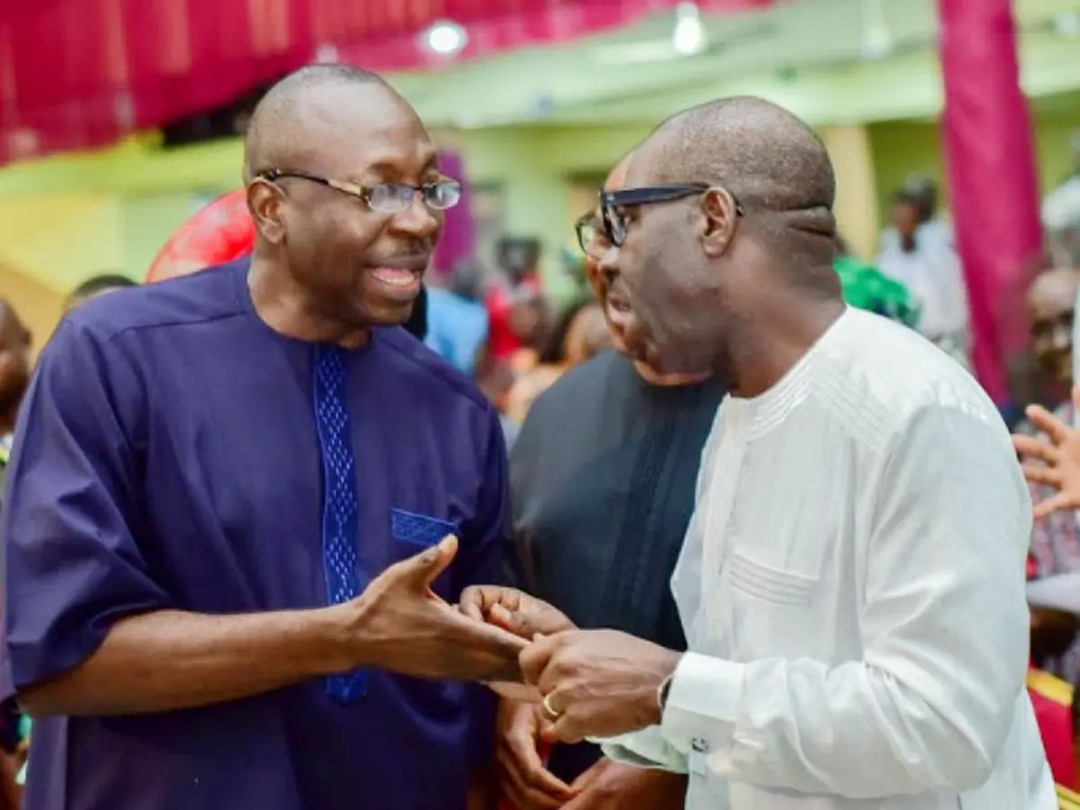The Centre for Democracy and Development (CDD) has released its preliminary finding on the September 19 governorship election in Edo State. One major highlights of the findings focuses on how the brazen buying of votes by the two major political parties in the election would taint the credibility of the outcome. At a media briefing to present its key interim findings on the election, CDD Director Idayat Hassan said the nature of vote buying had become more sophisticated as politicians induced voters with such items as Ankara fabric, spaghetti, and cash ranging between N1000 and N5000. Similarly, the group stressed that the other issue which stood out in the election was the attempt by politicians to shape narratives through the use of propaganda and false narratives on social media. CDD noted that the high level of propaganda from the political actors, made it difficult for voters to ascertain the truth about what was happening in the electoral terrain.
She said: “CDD observers reported cases where tickets were also given in lieu of cash for voters to vote and then return to use the ticket for collection of the cash. In several other cases as reported by our observers, cash of between N1000 and N5000 was distributed to voters who agreed to cast their ballot for the party paying for the vote.”
The pro-democracy think tank lamented that despite the pervasive nature of vote buying during the election, the law enforcement agencies, many of which deployed in big numbers to Edo State, did not deem it necessary to apprehend and prosecute those who engaged in vote buying. She said there was a need to specify, which of the law enforcement agencies would take responsibility for investigating and prosecuting those involved in the illegal acts of vote buying.
“CDD observer reported that law enforcement officials largely looked the other way while vote buying was going on. No efforts whatsoever were made to bring to book the perpetrators of these acts, which corrupt the electoral process. Vote buying was widespread in this election. For instance, CDD observers reported seeing voters discreetly exchanging their voters cards with money from party agents at Polling Unit 8 Ward 2 of Okpon Area of Ovia-Southwest Benin. It was a similar case in Etsako Central Ward: 1 Unit 5 and 6 where voters sold their votes for N1,000.
“The brazen manner with which votes were bought and sold in the open calls to question the relevance of the over 30,000 police officers deployed to enforce the law during the election. CDD is concerned that despite expending time and resources to deploy thousands of law enforcement officials to the electoral space, the officers did nothing in the face of infractions such as vote buying.”
On the arrival of INEC officials, the centre said its observation of the election shows there was late arrival of INEC officials across the state. “The consequence of the late arrival for commenting of polling is that voting started late in most parts of the state. CDD observers report that the late arrival of poll officials was caused by poor logistics, especially transportation of personnel and election materials to polling units.”
CDD said the late arrival of INEC officials and election materials had an effect on the adherence to COVID-19 directives, as officials tried to rush commencement of the process to make up for lost time.
“This led to the flouting of protocols and directives for COVID-19 prevention. CDD observers reported pockets of protests by ad-hoc staff, who complained over issues such as non-payment of statutory allowances.
“The protests by ad-hoc staff led to lengthy delays in the election. These logistics issues, especially with respect to transportation of personnel and materials to polling units, and claims of non-payment of election workers, have been a recurring theme in the conduct of elections by INEC.”
On compliance to protocols for prevention of COVID-19, CDD stated there was a general non-compliance to key protocols for preventing further spread of the novel Corona Virus. The group said in a number of the exceptional cases where compliance was observed, it was limited mainly to the wearing of face masks.
“The flouting of rule of physical distancing was the order of the day, there was complete inability of INEC to maintain her 2 meter rules as written in her guidelines. It is important that the late arrival of INEC Staff also contributed to the non-compliance with the COVID 19 protocol as the INEC officials in an attempt to rush commencement forgo the processes.”
The group also lamented that INEC poll officials were also reported to have flouted COVID prevention guidelines, with many placing their face masks on the chin, while conducting the election. CDD said in the light of the risks posed by the COVID-19, INEC should explore further preventive measures by instructing poll officials involved in the conduct of the election to self-isolate, while working with the Nigeria Centre for Disease Control (NCDC) to test poll workers, who conducted this election.
On incidents of violence in the election, CDD said its observers reported incidents of violence in Ikpoba Okha, Oredo, Esan West and Oriohomwan due to the activities of political thugs who disrupted voting in different polling units.
“In Ologbo, Ikhoba Okha LGA, for example, one person was reported to have been shot while in Ihomwonde LGA, Ward 5 PU 1, 2, and 3, voting process was reported not totally peaceful as conflicts erupted amongst party agents that resulted to disruption of the process. In Egor LGA, electoral materials were allegedly hijacked in Ward 9, Unit 15 by political thugs who are hell-bent to subvert the electoral process. CDD observers also reported an incident of shooting in Orhionmwon Local Government Area. Party agents were also major drivers of violence in areas with incidents as the engaged in altercations, which later snowballed into fisticuffs.” The group however said the level of violence was not as widespread as had been envisaged.






















